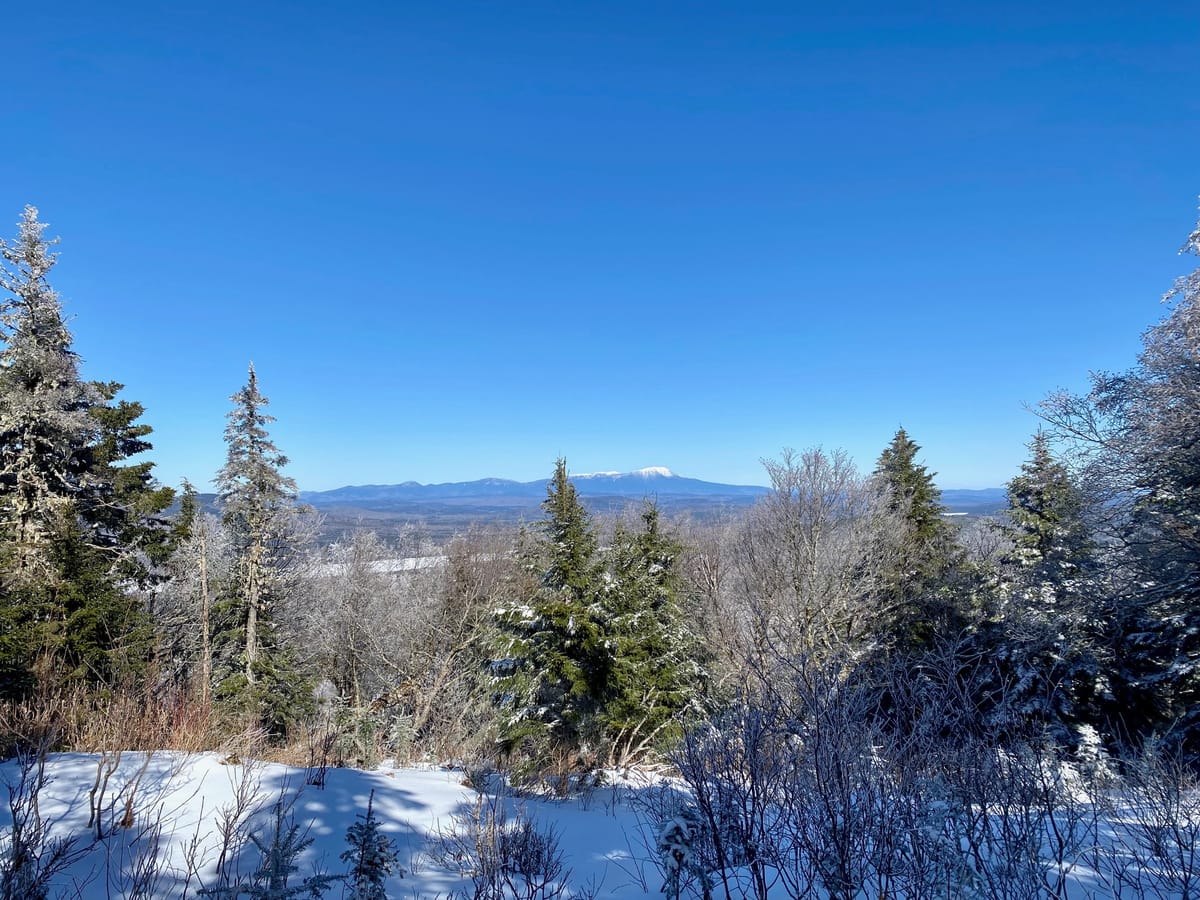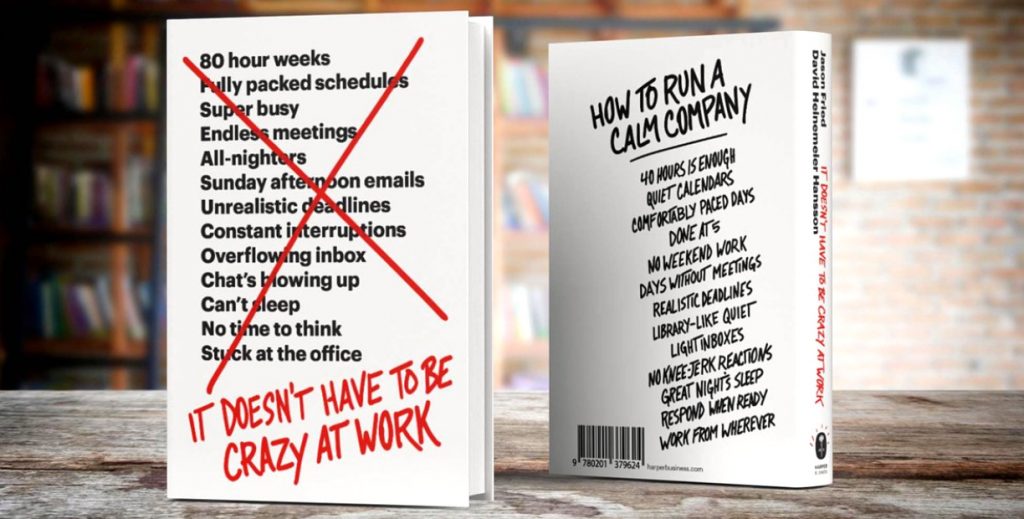Simplicity

But the thing is, there's not more work to be done all of a sudden. The problem is that there's hardly any uninterrupted, dedicated time to do it. People are working more but getting less done. It doesn't add up–until you account for the majority of time being wasted on things that don't matter... the answer isn't more hours, it's less bullshit. Less waste, not more production. And far fewer distractions, less always-on anxiety, and avoiding stress.
- Jason Fried and David Heinemeier Hansson, It Doesn't Have to be Crazy at Work
I recently spent a few days at a lodge in rural Maine with my friend David. No running water. Heat only from a wood stove in the main room. No wifi or cell signal. And the only screen in sight was to check in and out (and run up a beer tab) at the main lodge.
We were in the Appalachian Mountains, near Maine's 100-Mile Wilderness and part of the Appalachian Mountain Club's Maine Wilderness Lodge Network. Beautiful and exhausting trails, snowshoe hikes capped off by incredible views of Katahdin (the highest peak in Maine), and encounters with fresh moose and lynx tracks.
And the stars. Medawisla is one of the only areas in the eastern US approved by Dark Sky International, meaning it has almost zero light pollution. The phrase "blanket of stars" has never made more sense.
But among many amazing experiences, the best part? We lived so simply.
We physically worked hard outdoors all day – a nine-mile snowshoe hike burned a couple thousand calories. We drank tons of water and a few delicious beers. We ate communal meals together with other interesting, active lodge guests. With no internet or TVs, we fell asleep early in the evening and awoke with the sun.
It all just felt so human. And humane. It's how we were made to live.
I didn't need to meditate, journal, or drink Athletic Greens. I didn't have to go for a run or lift weights. I didn't need a weighted blanket, sleep mask, or room darkening shades. I didn't feel the need to listen to any podcasts and I couldn't have cared less what was happening in the news.
All I needed was good exercise, good sleep, good company, and lots of fresh air.
Last week was summer activity sign-ups in our city. Our boys will be five next month, and other parents are already asking how many camps, sports, and activities we're signing them up for.
Swim lessons, safety town, t-ball, and camps for art, science, inventions, and super heroes. Some families we know signed up their kids for an activity every week. Add in summer vacations, and the entire summer is booked.
My childhood summers? I'd watch multiple episodes of Sportscenter and maybe an episode or two of Wings. Then my buddies and I would spend the afternoon at the pool. I'd wrap my day with a baseball practice or game at night.
Kids are now expected to always be Doing Something Meaningful. Whether finding the sport that will lead to a scholarship, studying harder to get into a good college, or taking up a new extracurricular to be more competitive in applications.
And we wonder why kids' mental health is suffering? The pressure starts as early as three and four years old to perform, succeed, and achieve. Always-on anxiety.
We could take a page from the playbook in the quote I started with. The writers, Jason Fried and David Heinemeier Hansson, co-founded 37 Signals, which makes software products like Basecamp and HEY email. They wrote It Doesn't Have to be Crazy at Work for the office. Obviously. But many of the principles apply to life. (And it may have one of the coolest book covers.)

We don't need regular 80-hour work weeks, non-stop Zooms, no sleep, missed workouts, and drive-through dinners.
And we don't need to do it all in our personal lives. We can grow out of relationships. We can say no to the volunteer opportunities. We can turn down the trip that we didn't want to go on anyway. We can eliminate bad habits to make room for better ones.
It's less bullshit. Less waste, not more production. And far fewer distractions, less always-on anxiety, and avoiding stress.
We can, as Greg McKeown so beautifully says in Essentialism, discern the trivial many from the vital few.
Carl Jung said: "The greatest burden a child must bear is the unlived life of its parents." How much of our busyness is living the lives our parents laid out for us? And how much of our kids' busyness is pushing them to fulfill our dreams?
The greatest gift we can give ourselves and our kids isn't a packed week or summer full of camps. Instead, we can instill simplicity with the gift of calm. We can give ourselves a break. And until kids find their passion, all they need is fresh air, sunshine, and hose water.
It's hard to recreate the simplicity and serenity of the Maine wilderness in Central Ohio, but I'm sure going to try.
Even if the only moose tracks I'll ever see are in the ice cream aisle.